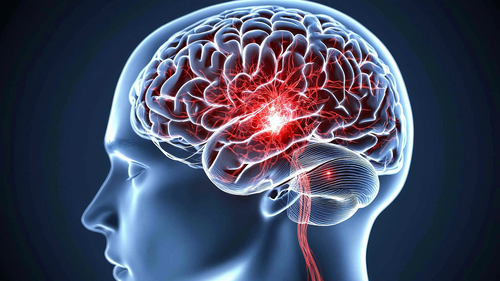30 September 2025
No improvement in motor recovery after stroke with levodopa
The ESTREL study led by DKF research group leader Prof. Stefan Engelter, Dr. Josefin Kaufmann, Prof. Henrik Gensicke and PD Dr. Christopher Tränka (University Geriatric Medicine FELIX PLATTER & University Hospital Basel) refutes common practices in stroke rehabilitation. The study results have now been published in JAMA.
Levodopa is well known
Despite major advances in the acute treatment of stroke, more than two thirds of those affected suffer from relevant motor impairments in the long term. Earlier studies (mostly with small case numbers) had suggested that levodopa - a well-tolerated drug from Parkinson's therapy that has been tried and tested for decades - could have the potential to improve rehabilitation after stroke.
Large-scale study supported by the SNSF IICT program
Against this background, the ESTREL study funded by the SNSF program "Investigator Initiated Clinical Trials (IICT)" was initiated. ESTREL - "Enhancement of Stroke Rehabilitation With Levodopa" is a randomized, placebo-controlled, double-blind study. 610 patients with acute ischemic or hemorrhagic stroke were treated in 13 certified Swiss stroke centers and 11 rehabilitation clinics. The aim was to investigate whether levodopa, which supports dopaminergic signaling in the brain, can improve motor recovery after stroke when administered in addition to established rehabilitation based on active and task-oriented training.
Levodopa offers no advantages
Three months after the start of therapy, there was no significant difference in motor function between the levodopa group and the placebo group as measured by the Fugl-Meyer Assessment (FMA) total score. There were also no relevant differences in the secondary endpoints - including patient-reported health data, mobility indices and neurological scores. In short, the addition of levodopa to standardized rehabilitation after acute stroke did not significantly improve motor recovery.
Conclusion
The results underline the importance of evidence-based research for clinical practice. A clinically relevant question has now been clearly answered.
The study team is now planning further analyses of the long-term course in addition to the published evaluation. The aim is to investigate whether the integration of biomarkers, genetic factors and imaging can be used to track individual rehabilitation success. The long-term goal is to increasingly personalize stroke rehabilitation.

Enhancementof STrokeREhabilitationwith Levodopa: A randomized controlled trial
Head
Prof. Stefan Engelter
Dr. Josefin Kaufmann
Prof. Henrik Gensicke
PD Dr. Christopher Tränka
University Geriatric Medicine FELIX PLATTER & University Hospital Basel
Study design
Investigator-initiated, multicenter, randomized, placebo-controlled, double-blind study
Study centers
24 study centers in Switzerland
Patients enrolled
610 patients with acute ischemic or hemorrhagic stroke
Project duration
2019 - 2025
Follow-up until 2029
DKF-Scientific Services
consulting, statistics, data management, data science, monitoring
Funding
SNSF program "Investigator Initiated Clinical Trials (IICT)"
